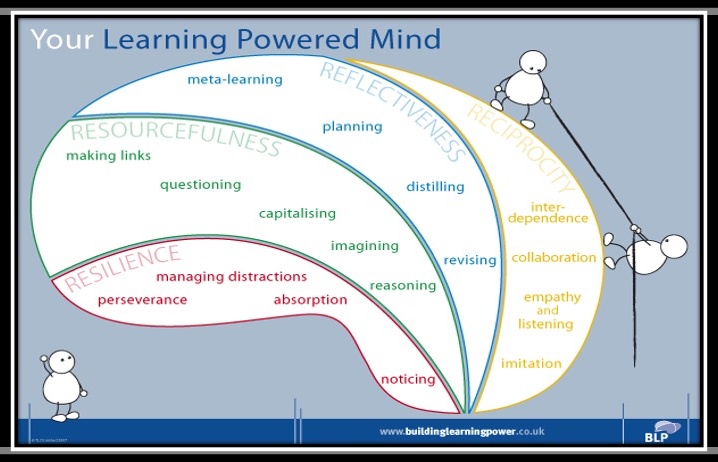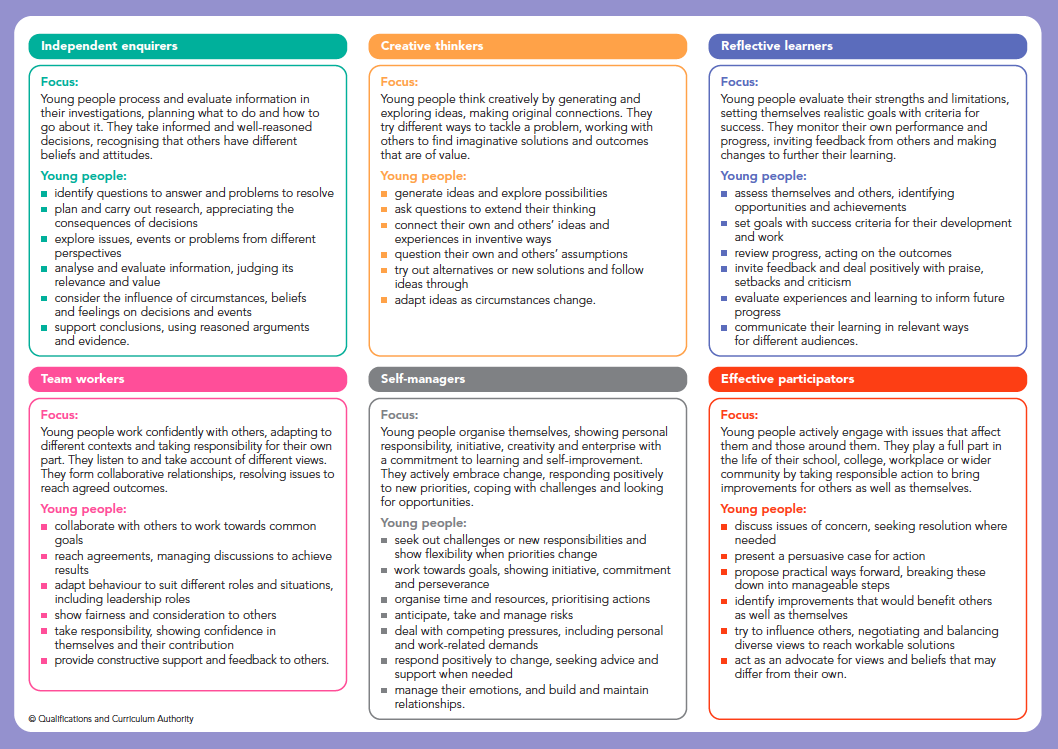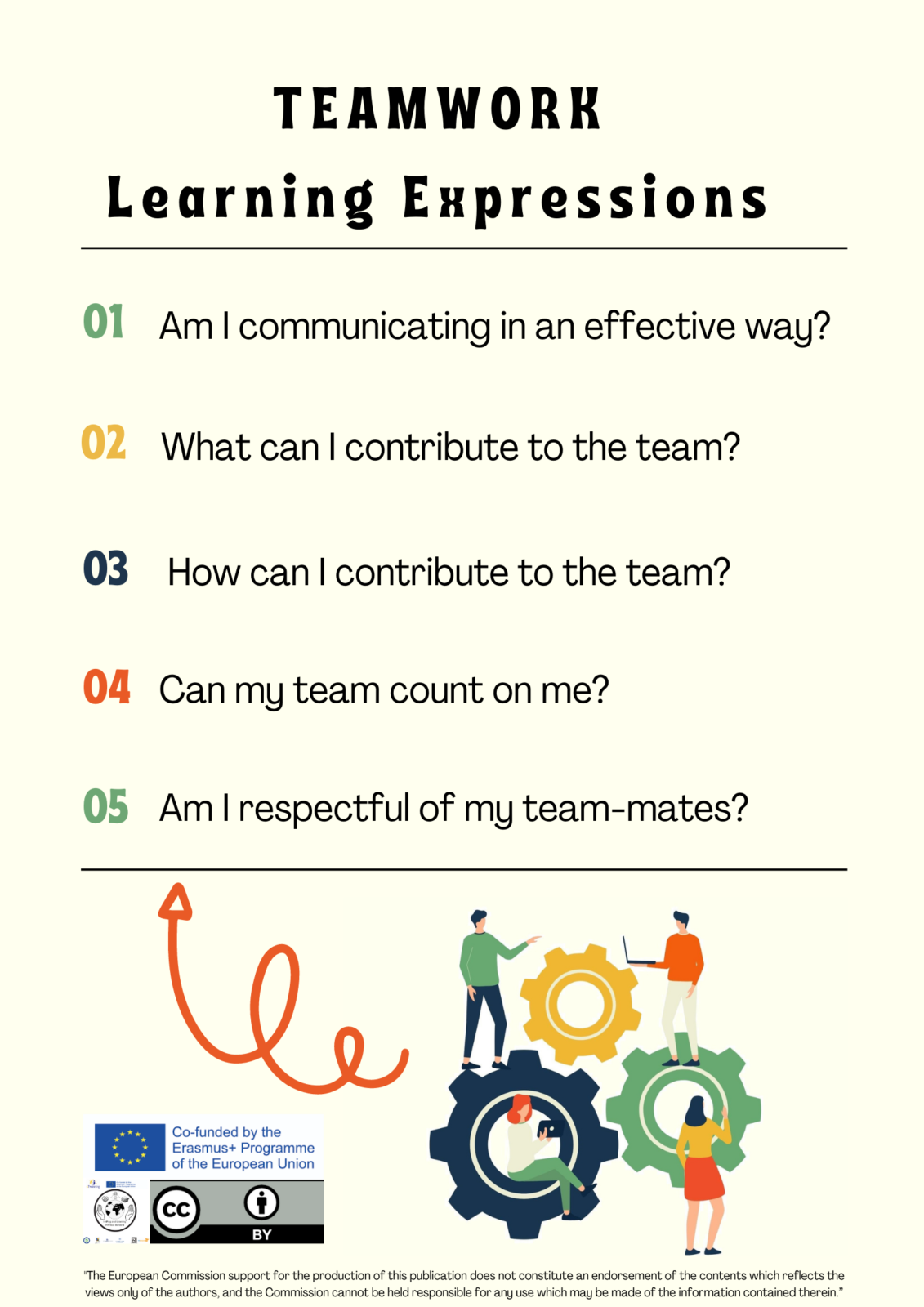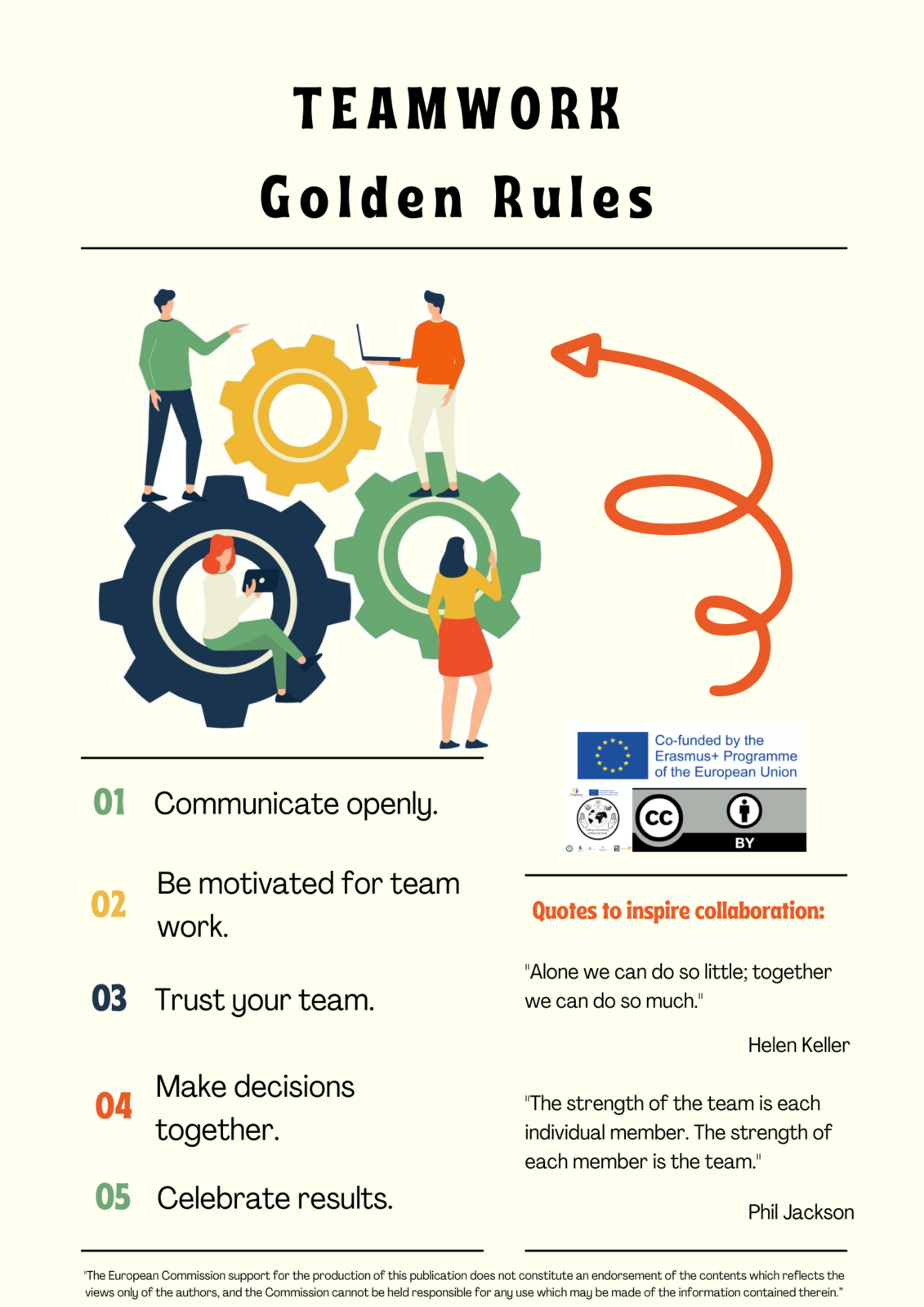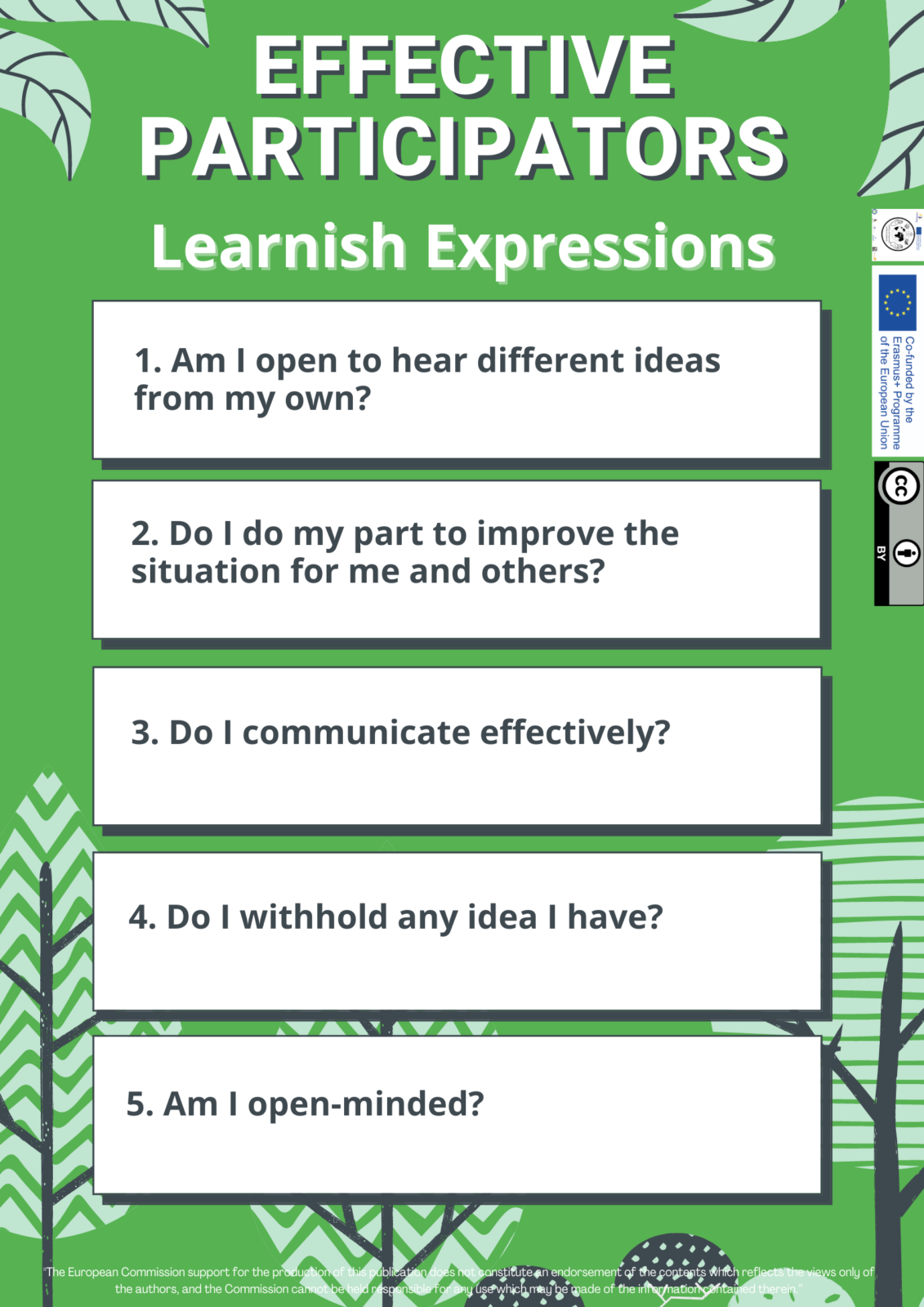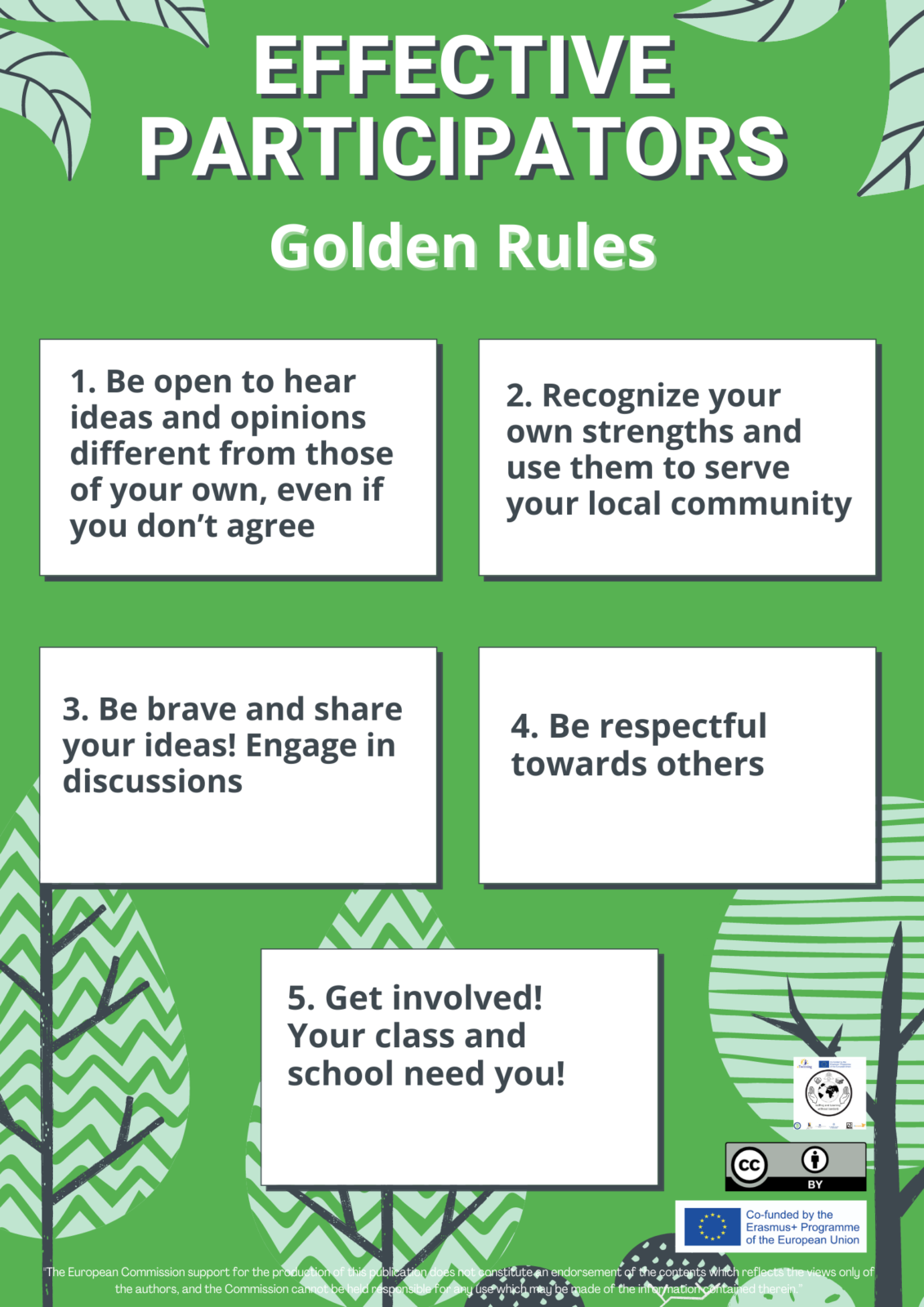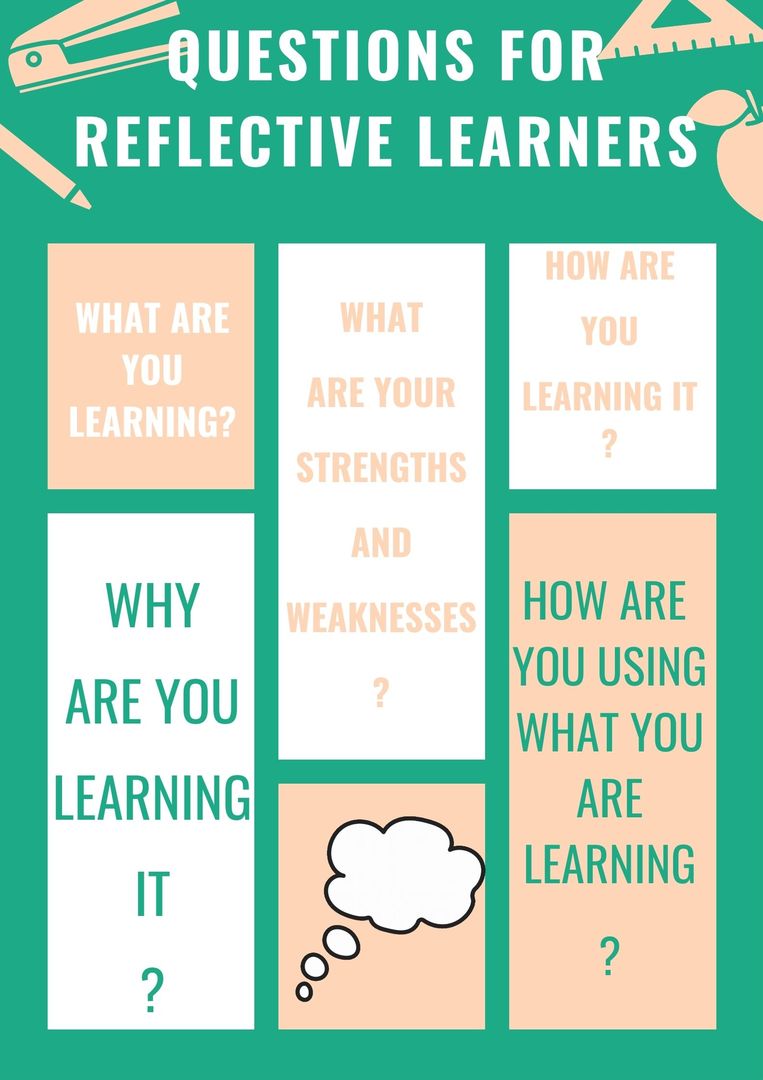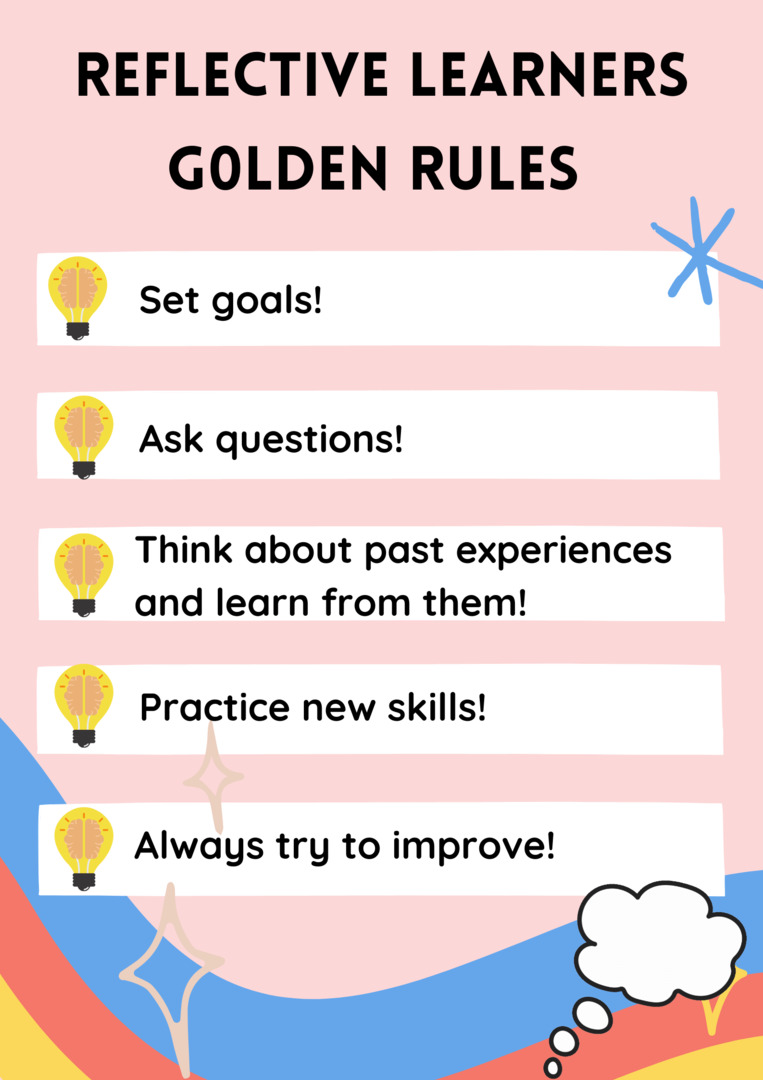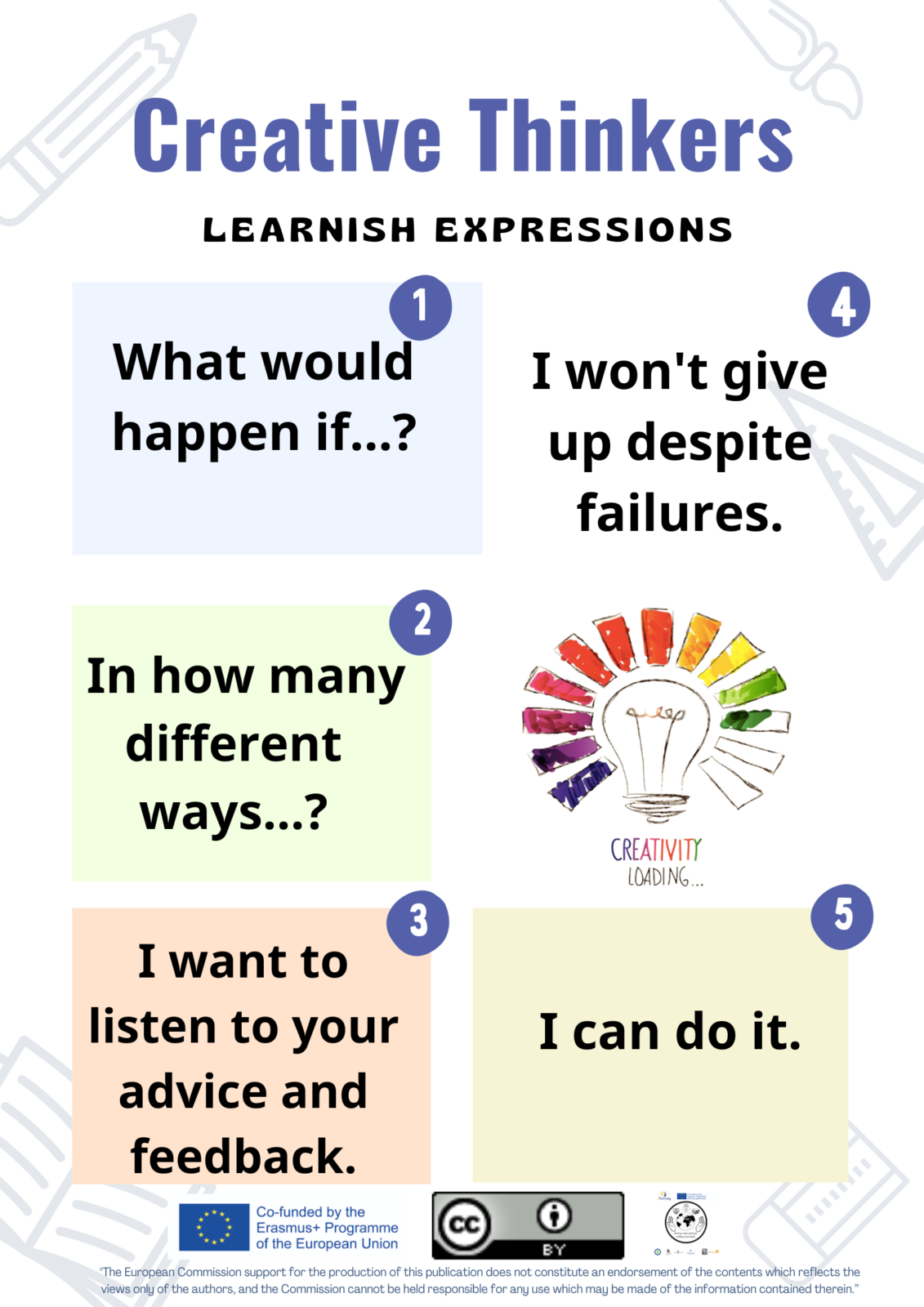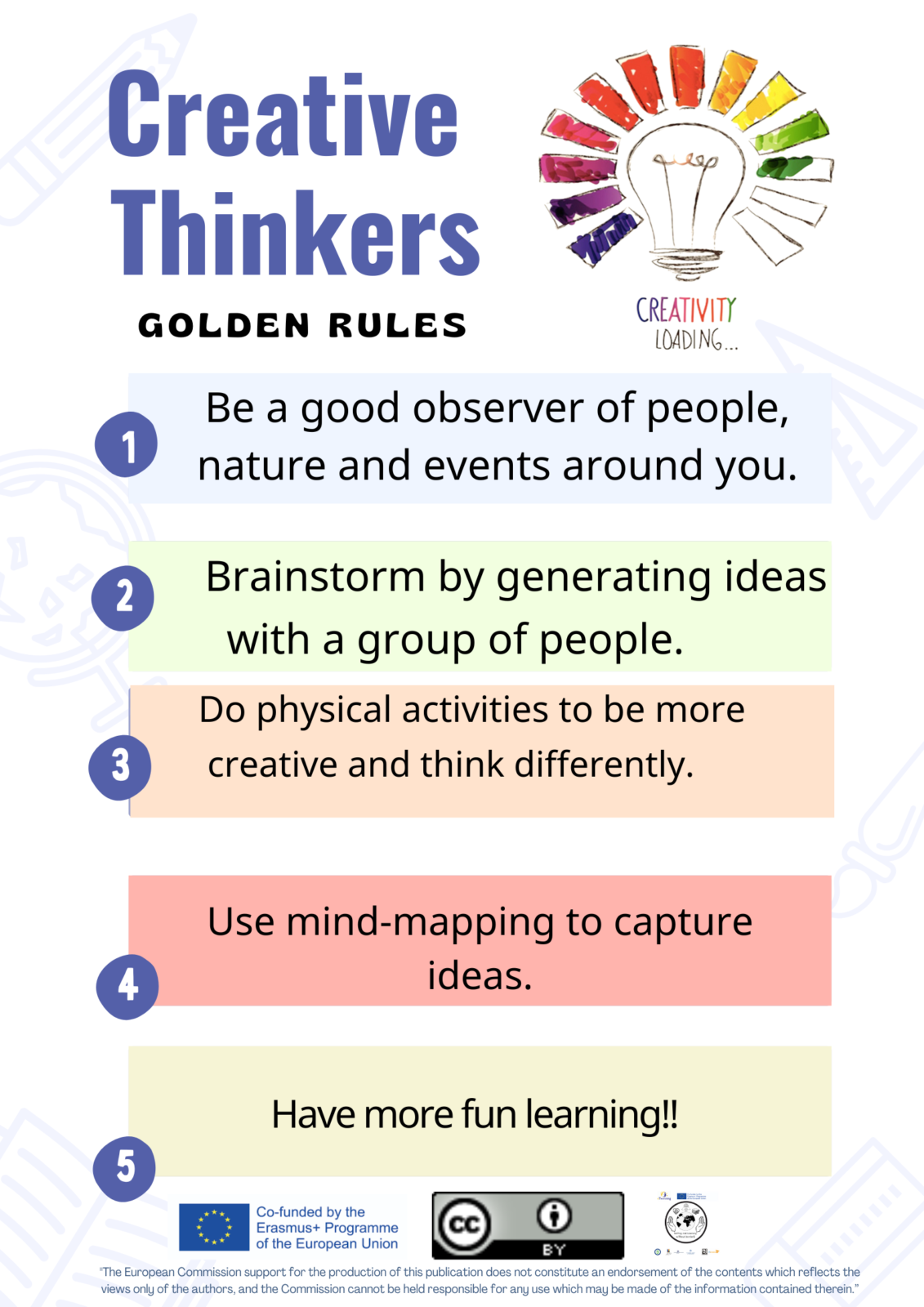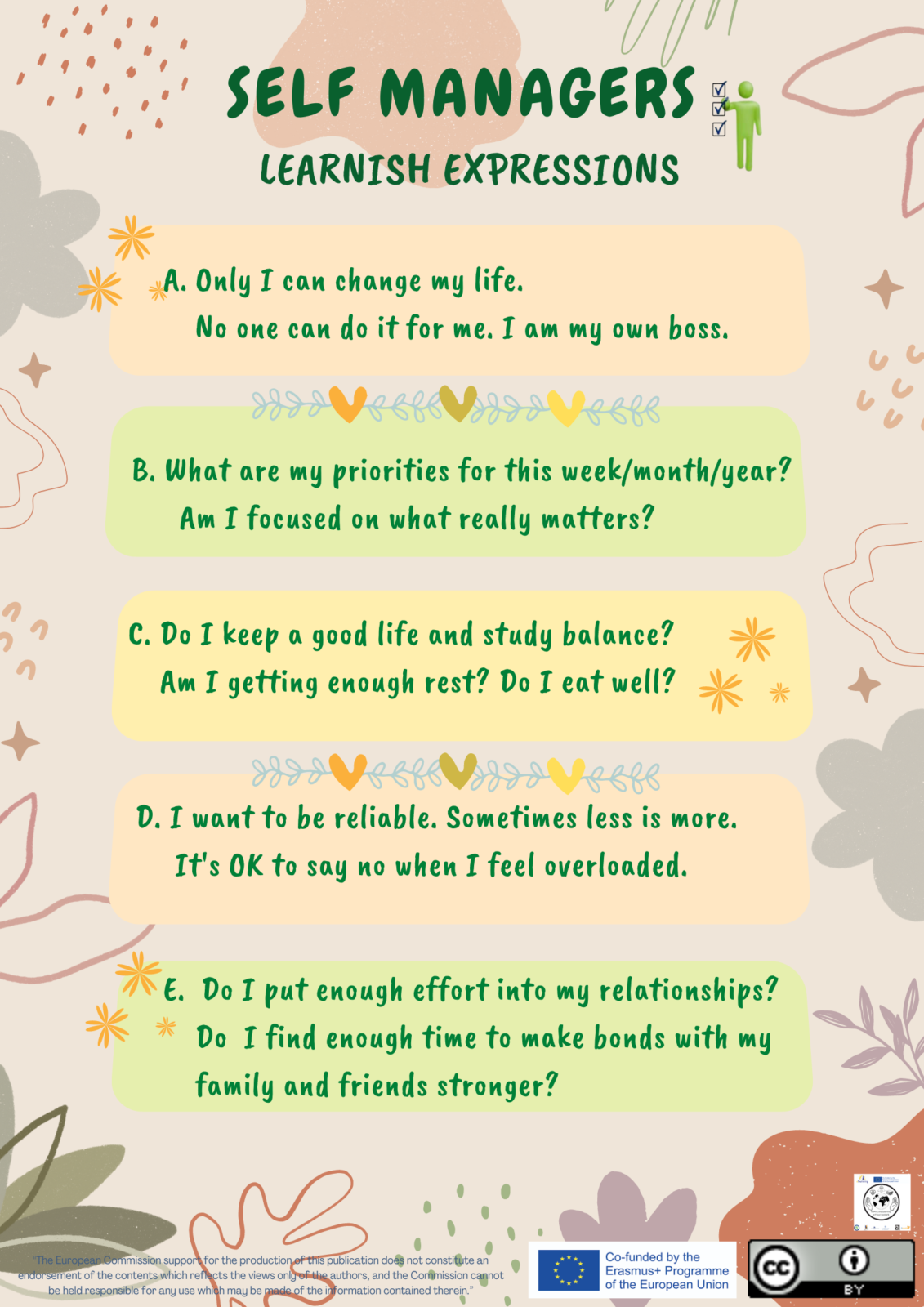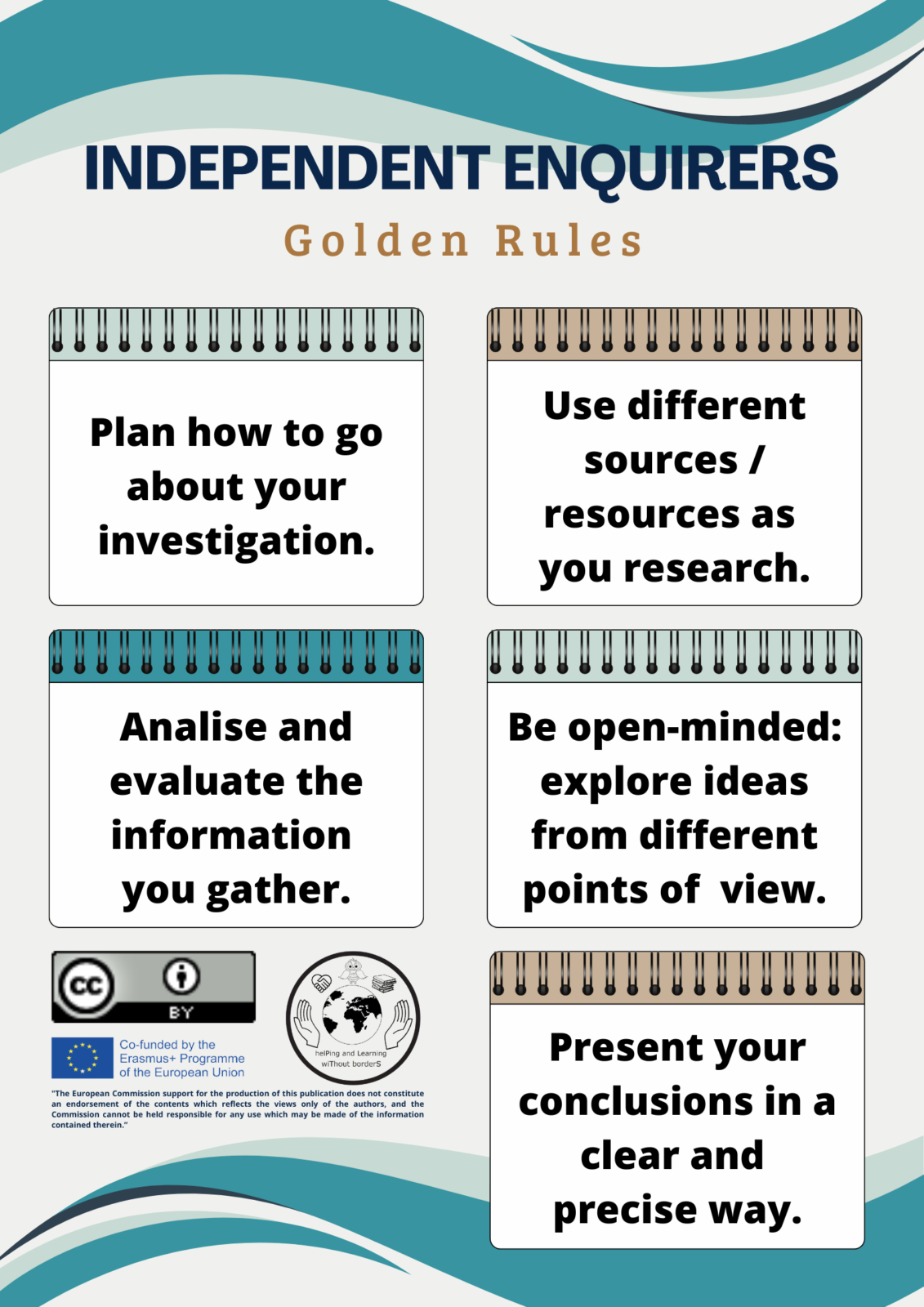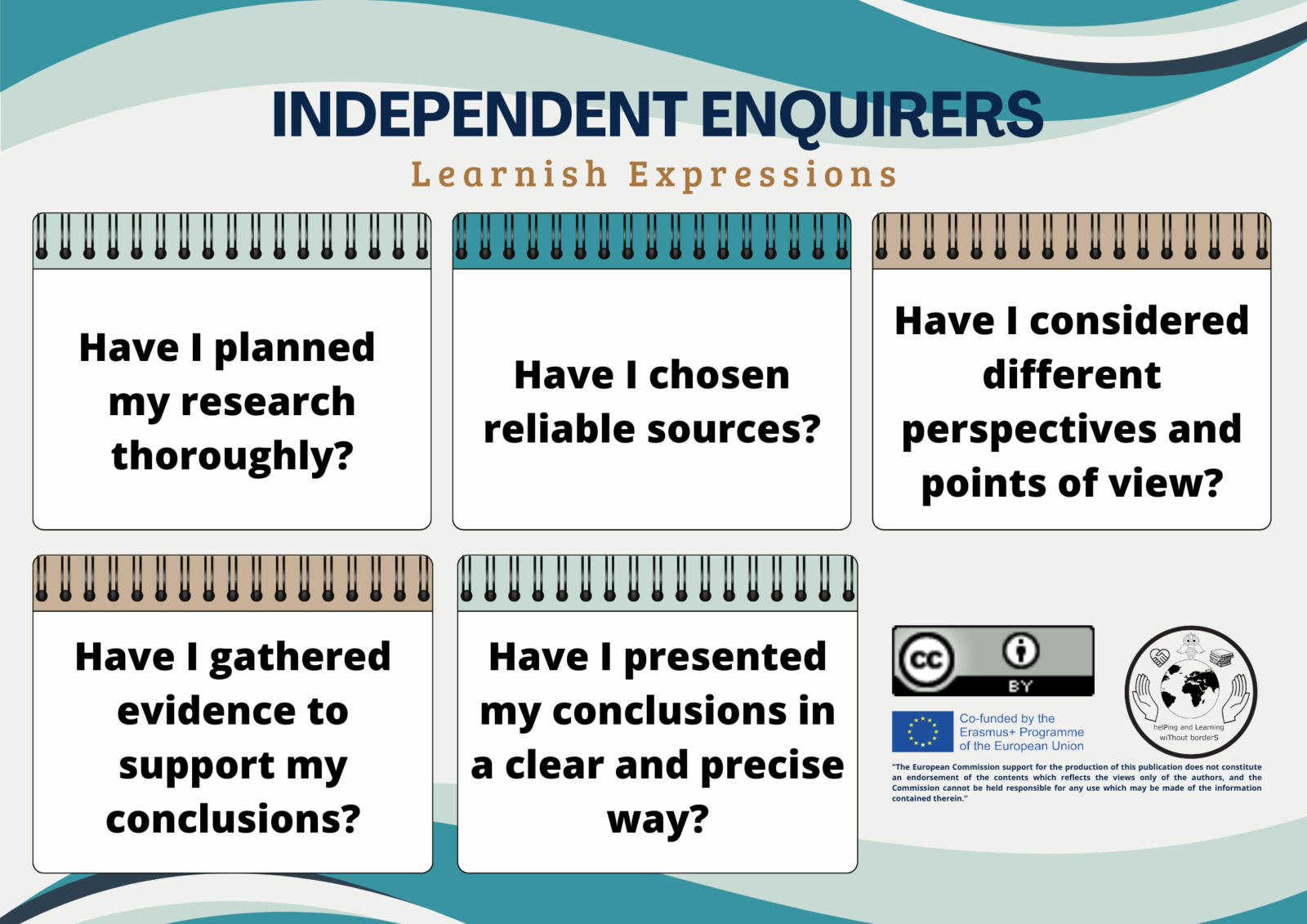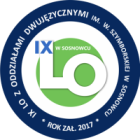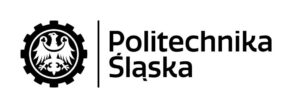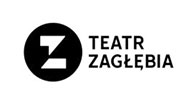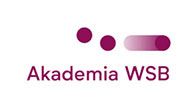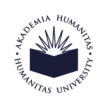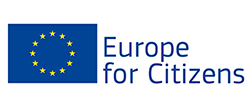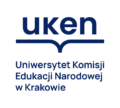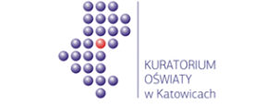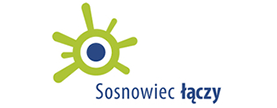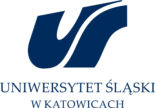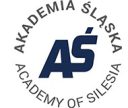
„helPing and Learning wiThout borderS – PLTS”, project’s number: 2020-1-PL01-KA229-082145
Within our project, international teams of students and teachers are collaborating to create PLTS POSTERS – Golden Rules and Learnish Expressions for students and teachers, in order to support the development of six Personal Learning and Thinking Skills.
Here you can find the links to free downloadable versions of the PLTS posters
in English, Portuguese, Spanish, Greek, Finnish, Italian and Polish.
REFLECTIVE LEARNERS
Presentation on METACOGNITION, PERSONALITY AND LEARNING STYLES by Italian deputy and teacher, Carmela Caccamo
Presentation for students introducing the topic of Reflective Learning by Rina Carfi and Antonella Lepanto (Italy)
A kahoot quiz for students on Reflective Learning
Are you a Reflective Learner? – checklist (google forms)
Lesson plan – Reflective Learners, SMART objectives, coaching by Izabela Zdańkowska and Patrycja Zbieranek-Pietraszczyk (Poland)
Lesson plan – Reflective Learning and Human rights by Ifigeneia Kaklamanou (Greece).
CREATIVE THINKERS
A presentation about what it means to be a Creative Thinker and what benefits you will get from it link
Practice your Creative Thinking with riddles! link
Useful links for teachers, educators, and students – Creative Thinking Skills Builder link
SELF-MANAGERS
SELF-MANAGERS IN SCHOOL AND LIFE GUIDE link
Do the survey to check if you are a good Self-Manager link
Self-Managers Workshop (made with the use of a Critical Thinking routine) scenario by Katarzyna Baca link
Self-Managers Workshop products (students’ posters) link
INDEPENDENT ENQUIRERS
How to improve your independent enquirer skills (practical guide and a questionnaire): link
Tips for teachers on how to build students’ independence: link
Practice your Independent Enquirer Skills: a video link , a worksheet link (Test Yourself!)
Treasure Hunt – a perfect and innovative example of teamwork for learning about the region and independent enquiring: link for teachers, link for students (authors: Alzira Mendes, Teresa Sofia Gouveia)
SEMINARS ON INNOVATIVE METHODOLOGIES
On 11th February 2021 the Polish English teacher, Katarzyna Baca, gave two seminars on eTwinning. 50 teachers from different European countries, including Poland and the Polish school, participated in each of them.
Below you can find the links to the presentations used.
PBL promotes such important skills as group work, autonomous learning, self-assessment skills, time planning, project work or oral and written expression skills. It improves student motivation, which translates into better academic performance and greater persistence in the study. During this seminar I shared the knowledge I and my colleague have got thanks to our participation in a PBL training in Florence and a job shadowing on PBL and Cooperative Learning in Spain in 2019 thanks to Erasmus+ KA 101 project. There were some very practical tips and solutions we observed and now use in our everyday school practice.
PLTS framework and Building Learning Power:
The PLTS framework comprises of six skills that, together with the functional skills of English, mathematics and ICT, are essential to success in learning, life and work. The six personal learning and thinking skills are Independent Enquiry, Creative Thinking, Reflective Learning, Teamwork, Effective Participation, and Self-Management. I this seminar I explained how we can help our students develop their 21st-century skills in our everyday school routine. The seminar was based on the materials and knowledge I have got thanks to the amazing training on „Learning to Learn” by David Smith I completed in Richard Language College in August 2019 thanks to Erasmus+ KA101 project „School Open To Change”.
On 29th April 2021 the Polish teacher, Joanna Janas-Sajdak, gave a seminar on Neurobiology. 8 teachers from different European countries, including Poland and the Polish school, participated in it. Everybody found this seminar very useful. Below you can find the link to the video.
Neurobiology-a key to a successful classroom – a video recording
Why aren’t my students motivated? How to motivate my students? Is it at all possible? Why aren’t my students successful even though I as a teacher try so hard? I used to ask myself these questions not so long before. I was very frustrated because I couldn’t see the results of my work, and then, one experience in my teaching career allowed me to see that it doesn’t have to be that way. German neurobiologist Manfred Spitzer says “students’ brains are a teacher’s workplace”. The findings of the neurobiological research helped me understand what actually takes place when someone is learning and provided answers to many of my questions. I believe that the more we know about the brain and the process of learning, the greater the results and satisfaction of our students and ours. During the seminar I will share some of the findings that allowed to me to introduce changes in my approach and make lessons more enjoyable for me and my students.
A GYMKHANA AS A TOOL FOR COOPERATIVE LEARNING
Genial.ly presentation for the Activity of Circular Economy made by Susana Gil (Spain).
The students worked in international groups, using tablets to solve all the tasks. They worked in the school garden.
OUTDOOR EDUCATION IN FINLAND
Links to kahoot quizzes (outdoor education in Haukankierros), by Kaija Turunen:
http://dy.fi/s9
http://dy.fi/q5g
WOULD YOU LIKE TO TEST YOUR PERSONAL LEARNING AND THINKING SKILLS? CHECK YOURSELF WITH OUR QUESTIONNAIRES: link
If you have found the above materials useful, please let us know in our public facebook group!
Thank you ! 🙂
#plts #pltsframework #buildinglearningpower
